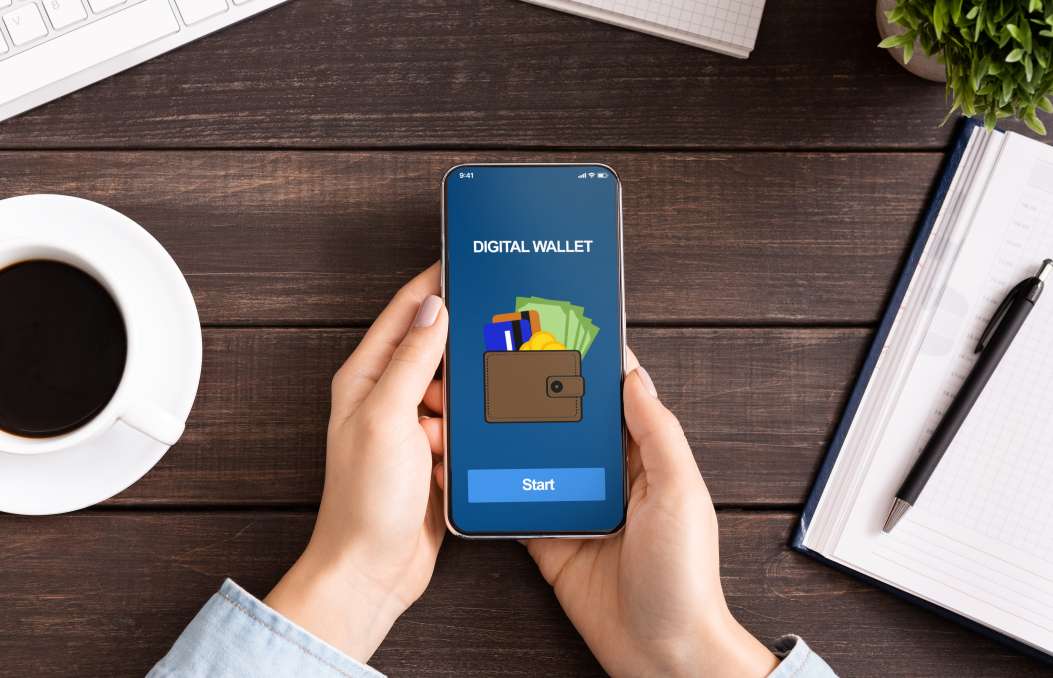Multi Currency Wallet: Features to Look for 2025
In an increasingly interconnected world, professionals and businesses now manage financial activity across numerous currency zones. A multi currency wallet offers a single platform to hold multiple currencies, simplifying global payments, send money, and receive payments across borders. The right multi‑currency wallet can dramatically reduce friction for international customers, remote workers, and global businesses, pairing convenience with low transaction fees and transparent exchange rates.
Choosing the right wallet is no longer optional. Security, cost transparency, and seamless cross border payments determine whether a solution empowers growth or introduces hidden costs. In this guide, we explore what a multi currency wallet offers, who stands to benefit, and which features matter most to ensure readers make informed decisions in 2025.
What is a Multi Currency Wallet?
A multi currency wallet is a digital wallet that allows users to hold, send, receive, and exchange multiple currencies within a unified platform. Unlike traditional bank accounts that typically support only a single currency, such wallets provide multi currency accounts accessible from one account, eliminating the need to maintain separate local accounts across different countries.
Each wallet acts as a central currency wallet for managing funds in multiple currencies, whether major fiats such as USD, EUR, and GBP, or, increasingly, cryptocurrencies alongside traditional money management tools. Typically, they operate by partnering with banks or e‑money institutions; these service providers either hold virtual balances through a unified IBAN‑style system or aggregate multiple local accounts managed through an intuitive interface.
With a digital wallet, users can monitor balances across currencies, convert funds at live exchange rates, and receive payments from global clients all within a single dashboard. This transparent design enhances usability and removes the friction associated with maintaining multiple bank accounts or navigating forex conversions manually.

Who Benefits from Using One?
A multiple currency wallet delivers clear advantages for professionals and individuals dealing with multiple currencies on a regular basis. Four primary groups stand to benefit most:
Entrepreneurs and Small Global Businesses
These professionals routinely handle cross border payments to vendors and freelancers worldwide. A multi currency wallet enables them to receive payments in different currencies from international customers and send funds to business partners without the delays or high costs typically seen with traditional banks. The convenience of a single platform reduces dependency on multiple bank accounts and often results in lower fees and improved cash flow management.
Digital Nomads and Remote Workers
For those who live or earn across different countries, managing money in local currencies is essential. With a digital multicurrency wallet, users can hold multiple currencies, convert funds when rates are favourable, and send money back home or to service providers without exorbitant conversion charges. Platforms supporting such usage report faster, more transparent financial operations for users on the move.
Expats and Frequent Travelers
Individuals residing abroad or frequently traveling can benefit from one account capable of holding local and foreign currencies. They avoid opening local bank accounts, simplify receiving money from home, and make in-country payments with minimal friction and cost. This consolidated access to funds improves financial control while reducing administrative burden.
Clients and International Customers of Global Sellers
Companies selling internationally can support clients who prefer to pay in their native currencies. A multicurrency wallet facilitates this by offering seamless customer experience as buyers pay in their local currency while sellers receive the correct equivalent. This builds stronger relationships with international clients and improves conversion for sellers.

Why Choosing the Right Wallet Matters in 2025
Selecting the right multi currency wallet is crucial in 2025, as it directly impacts cost efficiency, operational security, and stakeholder trust. With businesses and individuals increasingly engaging in cross border payments, choosing a wallet that offers clear security, minimal account fees, and dependable access is no longer optional.
Digital wallets that partner with regulated institutions and implement robust encryption protocols alongside two‑factor authentication and real‑time fraud alerts provide stronger protection for users’ balances and funds. Platforms that publish transparent exchange rates and outline any account fees upfront help avoid unexpected costs.
In contrast, inferior options may limit currency support, charge hidden fees, or offer weak data safeguards, all of which can erode trust with clients, suppliers, and international customers. A poorly chosen wallet can complicate payments, disrupt access, and impede the ability to manage working capital effectively.
Top Features to Look for in a Multi Currency Wallet
When evaluating best multi currency wallets in 2025, you should focus on the following critical features to ensure they offer the performance, reliability, and global reach required by modern users:
1. Support for a Wide Range of Currencies
Look for a solution that supports over 30 currencies, including major global currencies like USD, EUR, GBP, AUD, and also regional options. The ability to add or remove other currencies gives flexibility as your operations expand across different countries.
2. Real-Time Exchange Rates and Conversion Tools
A wallet with live exchange rates ensures you can convert funds at optimal times. Look for transparent interfaces that display all conversion costs before committing to a transaction. Some platforms even let you set rate alerts or automate conversions when a target rate is hit. This is helpful for managing working capital efficiently.
3. Security Features: Encryption, 2FA, Fraud Alerts
Security should be non-negotiable. Top-tier wallets use end-to-end encryption to safeguard data and funds. They require two‑factor authentication for logins and transfers, and provide real‑time alerts for suspicious activity. This level of protection guarantees trust among clients and international customers.
4. User-Friendly Dashboard and Mobile Access
Look for a clean, easy-to-navigate interface, both on web and app, that displays balances and recent transactions without clutter. The ideal wallet should offer mobile and web access with a unified UI, combining access to crypto and fiat balances as well as transaction history and account actions.
5. Linked Accounts, Cards, or Payment Tools
The ability to link your wallet to multiple bank accounts and payment tools such as Stripe or PayPal is essential. A wallet should also provide a dedicated multi‑currency segregated bank account with a personal IBAN, plus a Mastercard debit card to send money, spend globally, and receive payments automatically.
6. Multi-User or Business Access Options
Business wallets should support role-based access, enabling you to define permissions for finance staff or external accountants. Activity logs track who did what, ensuring internal control and transparency.
Fees, Exchange Rates, and Hidden Costs
Transparent pricing is essential when selecting a multi currency wallet. While some providers charge an upfront account fees, others may seem low-cost until hidden charges emerge. Common fee types include flat transaction fees, withdrawal charges, and exchange rate margins that significantly raise overall costs.
Many banks add substantial conversion margins or apply dynamic currency conversion (DCC) in ATMs and point-of-sale transactions, often without clear notification. These practices can add as much as 10–18% markup over interbank rates.
A multi currency wallet with low transaction fees and truly transparent exchange rates ensures cost predictability. Some platforms charge a small percentage of the transfer amount (e.g. 0.5–1.5%) but disclose it clearly before conversion or payment.
To compare providers effectively, assess both stated and hidden charges. Favor multi currency wallets that combine competitive exchange margins, minimal account fees, and upfront clarity in pricing structures.

Choosing the Right Wallet for Your Needs in 2025
Selecting the best multi currency wallets involves aligning platform capabilities with your specific use case, whether you're running a business, traveling frequently, or managing international customers.
- Match wallet features to your operations. If you handle cross border payments regularly, prioritize platforms with broad currency support, live exchange rates, and integration with your accounts or payment tools.
- Prioritize convenience. Look for a wallet that lets you spend, send money, and receive payments via an intuitive interface, especially mobile app access that offers 24/7 functionality.
- Be mindful of fees. Compare account fees, conversion margins, and withdrawal charges. Even providers with low headline fees may add costs through opaque pricing.
- Consider multi-user access. For teams or businesses, it’s vital to support role-based access, activity logs, and separate logins to ensure operational security and accountability with clients and partners.
- Evaluate support and compliance. Opt for providers with strong support channels, and clear AML/KYC practices. These both protect and reassure business partners that your platform is reliable.
Suisse Bank’s All‑in‑One Solution
Suisse Bank’s All‑in‑One Wallet offers a comprehensive and streamlined financial platform built for global entrepreneurs, remote workers, and international businesses. It provides a personal, multi‑currency segregated account held at Tier 1 bank NatWest, with support for over 30 currencies and payment capabilities in more than 170 countries.
With this solution, users operate from a single IBAN-style account, enabling them to send money, receive payments, and hold multiple currencies securely. The wallet supports international payment systems, including SWIFT, SEPA, and UK Faster Payments, ensuring smooth cross border payments without the need for multiple bank accounts.
Moreover, the platform seamlessly integrates crypto and fiat transactions: users can buy, sell, or convert leading cryptos (e.g. BTC, ETH, XRP) into fiat currencies within minutes, enhancing flexibility in managing working capital.
Final Thoughts on Choosing the Right Multi Currency Wallet
In 2025, choosing the right multi currency wallet is not just about convenience, it is about aligning your financial tools with the realities of global business and travel. A well‑designed currency wallet helps you hold, send, and receive payments in multiple currencies without the friction of juggling several bank accounts. Features such as transparent exchange rates, low and predictable fees, strong security, and seamless mobile app access can make the difference between efficient operations and unnecessary costs.
Thoughtful comparison pays off. Evaluating how each wallet manages cross border payments, integrates with your existing accounts, and supports your preferred currencies ensures that you select a solution that truly matches your needs. For those seeking a full-featured option that brings together multi currency accounts, crypto transactions, and broad international accessibility, Suisse Bank gives out to you a comprehensive choice.
The best wallet is the one that matches the way you use money which is secure, flexible, and ready for wherever your business takes you.
Become our client today and start international banking for your business needs.

